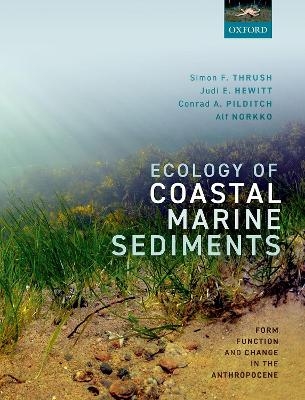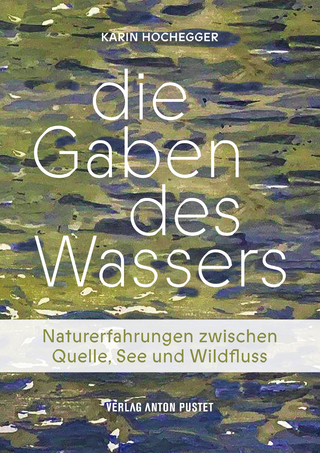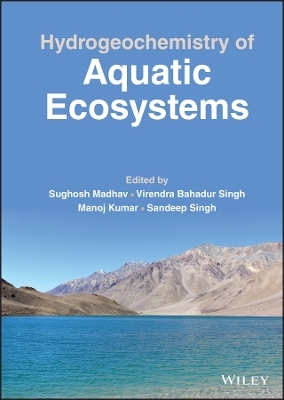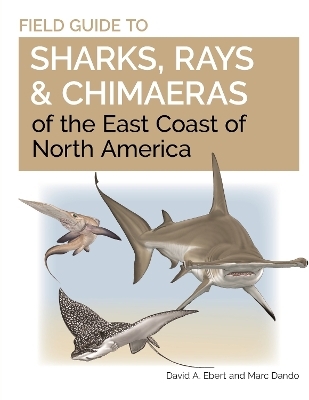
Ecology of Coastal Marine Sediments
Oxford University Press (Verlag)
978-0-19-880477-2 (ISBN)
This accessible textbook provides an ideal point of entry into the field, providing basic information on the nature of soft-sediment ecosystems, examples of how and why we research them, the new questions these studies inspire, and the applications that ultimately benefit society. While focussing on coastal habitats (<200m depth) to emphasize process-based experimental studies, it is relevant to the full range of marine sedimentary habitats. The authors describe the interactions between marine organisms and their physical and chemical environment, demonstrating the need for carefully designed research programs and providing the basic steps required to formulate sound ecological questions before applying them to empirical studies of real-world ecosystems. The book reveals the connections between different system components and drivers of change, examining how we can develop knowledge on the biodiversity and functioning of soft sediments and apply it to a better understanding of ecosystem change, human impacts, and effective restoration.
Ecology of Coastal Marine Sediments is intended for advanced undergraduate and graduate students who have completed a general ecology course but received no further training in marine science. It will also be useful to both professional researchers and resource managers in marine ecology and environmental science who seek a compact and authoritative introduction to sediment ecology.
Simon Thrush is Director of the Institute of Marine Science and Director of the George Mason Centre for the Natural Environment at the University of Auckland, New Zealand with research interests in marine ecology, marine ecosystem services, resilience and tipping points in marine ecosystems and human impacts on the environment. He has over 30 years' experience in the development and implementation of strategic ecological research to influence resource management and improve societal valuation of marine ecosystems. He has worked in New Zealand, Europe, USA and Antarctica, has contributed to over 200 publications in the peer reviewed scientific literature, and collaborates with colleagues around the world. Judi Hewitt is a programme leader in New Zealand's National Institute of Water and Atmospheric Research. She is a Professor in the Department of Statistics University of Auckland and is a docent in Marine Biology at the University of Helsinki. She has over 30 years of experience in marine research. Her interests include: statistical ecology; scale dependent processes in heterogeneous environments; design and analysis of spatial and temporal variation in populations and communities; measurement and conservation of functional, community and habitat biodiversity; biological and ecological mapping; ecological monitoring; functional, community and habitat biodiversity; ecological risk assessment, particularly of cumulative and multiple stressors. She has contributed to over 140 publications in the peer reviewed scientific literature. Conrad Pilditch is a Professor of Biological Sciences at the University of Waikato, New Zealand. His area of speciality is benthic oceanography/ecology focusing on the processes that influence the structure and function of soft-sediment communities. Specifically, he is interested in how hydrodynamics and benthic organisms interact to affect sediment transport, recruitment, nutrient fluxes, and food supply. He has conducted experiments in a wide range of environments ranging from the inter-tidal to the deep sea, a reflection of the extensive occurrence of soft-sediment habitats and resulting in over 144 publications. Alf Norkko is Professor at the Tvärminne Zoological Station, University of Helsinki, Finland and Guest Professor at the Baltic Sea Centre, Stockholm University, Sweden. He has has more than 20 years of marine ecological research in Finland, Sweden, and New Zealand. He is now Professor in Baltic Sea research at Tvärminne Zoological Station, University of Helsinki and Guest Professor at the Baltic Sea Centre at Stockholm University. His interests in ecology and environmental science are broad. He has worked on understanding marine ecosystem processes in general and the ecology of seafloor habitats in particular. He is broadly interested in community ecology, exploring the value of biodiversity and the mechanisms important for its maintenance, which has resulted in more than 125 publications.
Part I: The Environment
1: The sedimentary environment
2: Benthic animals and plants and what they do to sediments
3: Disturbance, patches, and mosaics
Part II: Doing Research
4: Design and the philosophy of sampling
5: Data collection methods and statistical analyses
Part III: Communities
6: Describing assemblages and biodiversity of sediment-living organisms
7: Biotic interactions
8: Temporal variations in benthic assemblages and processes
Part IV: Functioning
9: EF Ecosystem function
10: BEF Biodiversity-ecosystem functioning
Part V: Anthropocene
11: Human Impacts
12: Climate change and seafloor ecology
13: Restoration of soft-sediment habitats
Glossary
| Erscheinungsdatum | 17.02.2021 |
|---|---|
| Zusatzinfo | 63 colour line figures and photographs |
| Verlagsort | Oxford |
| Sprache | englisch |
| Maße | 190 x 245 mm |
| Gewicht | 474 g |
| Themenwelt | Naturwissenschaften ► Biologie ► Limnologie / Meeresbiologie |
| ISBN-10 | 0-19-880477-6 / 0198804776 |
| ISBN-13 | 978-0-19-880477-2 / 9780198804772 |
| Zustand | Neuware |
| Informationen gemäß Produktsicherheitsverordnung (GPSR) | |
| Haben Sie eine Frage zum Produkt? |
aus dem Bereich


